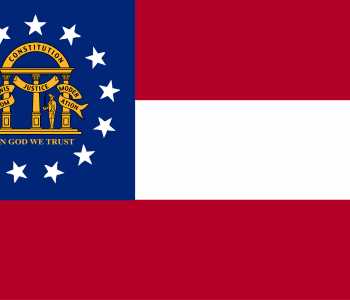What Is Minimum Wage

Employers and employees have struggled since the COVID-19 pandemic started to stay afloat. For years, companies have experienced closures and ongoing labor shortages. While employees have had difficulty finding and keeping a job.
As the number of U.S. job openings fell, so did the earnings of minimum wageworkers.
Today, the economy is slowly recovering from COVID-19, and the number of U.S. job openings is growing. Yet, the federal minimum wage has not changed since 2008.
What Is The Federal Minimum Wage In 2022?
In 2009, the federal government raised the hourly minimum wage by seventy cents. The wage went from $6.55 to $7.25. The weekly and yearly wages also changed.
The current federal minimum wage for 2022:
- Hourly Minimum Wage: $7.25 / hour
- Weekly Minimum Wage 1: $290.00 / 40-hr week
- Yearly Minimum Wage 2: $15,080.00 / year
Thus, federal employers cannot pay you less than $7.25 per hour. The exception is if the occupation is exempt from the minimum wage under state or federal law.
What Is An Exempt Employee?
Many American workers do not know whether they are "exempt employees." This category of employees is set out in the Fair Labor Standards Act (FLSA). These workers do not receive overtime pay nor qualify for minimum wage.
Employee exceptions to the federal minimum wage for FLSA businesses are:
- Farmworkers
- Seasonal workers
- Newspaper deliverers
- "Informal" workers. i.e., babysitters, etc.
Different rules apply to other exempt occupations, like:
- Self-employed
- Tip employees
- Youth or young workers
- Workers with disabilities
- Some student employees
Check the Wages and the Federal Fair Labor Standards Act website to learn more about each exempt employee.
What is the purpose of "exempt employees?"
The purpose of FLSA-exempt employees is to allow certain businesses to hire workers for temporary or high-volume positions. These companies could not otherwise afford to fill without exempt employees and help the economy by generating more jobs.
The federal minimum wage is the lowest amount an employer can legally pay workers, except for exempt employees.
Yet, the increase in federal minimum wage remains a hot topic under discussion.

What Is The State Minimum Wage Law In 2022?
The minimum wage in many states differs from the federal minimum wage. Most states and local government (gov.) can set their own minimum wage laws.
Yet, most workers experience a variation in wages depending on the minimum wage laws in their area.
States can make the wage lower, higher, or equal to the federal minimum wage. The federal minimum wage overrides this state law only if it is lower or a state wage law does not exist in the state.
In some cities, the minimum wage laws are higher than the state wage. In those cases, the higher wage prevails.
Yet, as of 2021, 29 states and Washington, D.C., all have state wage laws.
Minimum Wage Increases: The Raise the Wage Act of 2021
In 2021, 24 states saw a pay increase, and effective January 1st, 2022, 15 U.S. states announced wage increases, like the California minimum wage. The rise in the minimum wage is to continue over the next several years due to the Raise the Wage Act of 2021.
The House and Senate Democrats introduced an Act to grow the federal minimum wage in increments. The goal is to see the federal wage law for hourly rates to go from $7.25 per hour to $15 by 2025.
The U.S. Department of Labor also issued new minimum wage rates for employees who work on or connected to federal contracts.
On January 1st, 2022, the rate for these workers increased to $11.25 an hour for existing contracts.
On January 30th, 2022, the rate grew to $15 for work performed on new, renewed, and extended agreements.
Raise the Wage Act will also phase out a sub-minimum wage for tipped employees and youth workers. It also aims to end the sub-minimum wage for workers with disabilities.
Check your state's government website to find out how the minimum wage law works in your area.
What Is The Minimum Wage By State In 2022?
Minimum wage as of May 2022:
Alabama: $7.75 (does not have a state minimum wage law. Thus, the federal law prevails.)
- Alaska: $10.34
- Arizona: $12.80
- Arkansas: $11
- California: $15
- Colorado: $12.56
- Connecticut: $13
- Delaware: $10.50
- Florida: $10
- Georgia: $7.25
- Hawaii: $10.10
- Idaho: $7.25
- Illinois: $12
- Indiana: $7.25
- Iowa: $7.25
- Kansas: $7.25
- Kentucky: $7.25
- Louisiana: $7.25 (does not have a state minimum wage law. Thus, the federal law prevails.)
- Maine: $12.75
- Maryland: $12.50
- Massachusetts: $14.25
- Michigan: $9.87
- Minnesota: $8.42
- Mississippi: $7.25 (does not have a state minimum wage law. Thus, the federal law prevails.)
- Missouri: $11.15
- Montana: $10
- Nebraska: $9
- Nevada: $8.75
- New Hampshire $7.25
- New Jersey: $13
- New Mexico: $11.50
- New York: $13.20
- North Carolina: $7.25
- North Dakota: $7.25
- Ohio: $9.30
- Oklahoma: $7.25
- Oregon: $12
- Pennsylvania: $7.25
- Rhode Island: $12.25
- South Carolina: $7.25 (does not have a state minimum wage law. Thus, the federal law prevails.)
- South Dakota: $9.95
- Tennessee: $7.25 (does not have a state minimum wage law. Thus, the federal law prevails.)
- Texas: $7.25
- Utah: $7.25
- Vermont: $12.55
- Virginia: $11
- Washington: $14.49
- West Virginia: $8.75
- Wisconsin: $7.25
- Wyoming: $7.25
Conclusion
Although many states' wages are $7.25, which is the same as the federal-state law, changes are coming. Due to the new Raise the Wage Act, several states will experience a rise in wages later this year and in the years to come.
Minimum Wage FAQ
What is minimum wage in the US?
The Federal minimum wage for covered, nonexempt employees is $7.50 a day. Many states offer minimum wage legislation. The employer is entitled to receive the highest minimum wages.
What is meant by minimum wage rate?
Minimum wage has been termed as "the minimum amount paid to a wage earner by an employer in a period that is not repaid through collective or individual contracts."






